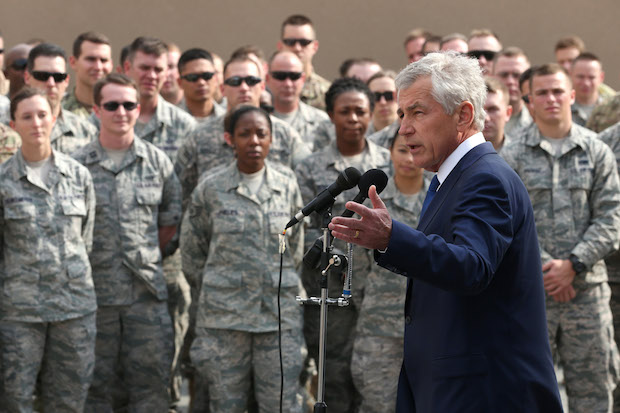The US Army’s cuts are good for Britain. They will force our European allies to think about their own defence and re-evaluate their policies. This will highlight the benefits of NATO’s guarantees and put the focus in the EU on what matters.
For over twenty years European members of NATO have had a free ride. They’ve enjoyed the protection of a shield on land and a fleet at sea wherever needed, and have prospered as a result. Insurance without premiums has been one hell of a gift. It has also led to what Sir Humphrey would call ‘courageous’ assumptions.
Just think what hasn’t happened. The Baltic States haven’t been invaded, Poland hasn’t been cowed like Ukraine or Belarus, Japan hasn’t feared China, oil hasn’t hit $300 a barrel and piracy has had little impact on world trade. Given the instability of the world since the fall of the Soviet Union none of that was inevitable.
And none of it happened by accident, but the only ones who recognised that were the newly-freed states of Eastern Europe. Old Europe knew what Chirac’s France denied: it’s the US Army, Navy and Air Force who have guarded the free world at great personal cost both in lives and treasure. But for many in NATO that first function of a government – defence – cost little or nothing.
Today’s Europe spends very little on self protection. Investment in navies has shrunk to its lowest levels in generations with only Britain and France manning fleets worthy of the name – and even then only just. Armies, though apparently not much reduced in size, lack the transport and equipment capable of allowing them to do more than simply operate in benign environments.
Air Forces have only maintained themselves by cutting everything that makes them viable. Even small nations without the capability to use them still buy aircraft. Why? Because even the most outwardly pacifist nation has a touch of the peacock about it. So we end up with situations, like last week’s, where Switzerland was unable to launch aircraft to intercept a hijacked Ethiopian Airlines plane because it was outside office hours. One can only hope an enemy will be more considerate.
The real reason the Swiss, and others, have been able to make such outwardly absurd decisions to keep Potemkin-like forces and leave themselves defenceless in a violent and unpredictable world is that they know they have the US on speed dial.
Yesterday, the US Secretary of Defence Chuck Hagel made it clear that though the number still works, unless it’s urgent and there’s nothing else on, there may be a delay in answering.
That forces questions not just of rearming, but more importantly attitude. Many countries will have to think again about their relationship to the US if they want to enjoy Washington’s guarantee of safety. Even trade will be affected. Many nations sell military equipment to the Gulf pretending not to understand that the relationship being bought is one through them to the US, not with them as a defence partner.
So America’s frankness has done Britain a huge favour. They have torn down the curtain. Europe should be under no illusion – America is opting out.
For our Eastern allies the timing is sobering. While the world watches for Russia’s reaction to events in Ukraine, Hagel’s comments have resonated louder, and our allies are left with a stark choice: invest in defence and make the political choices it demands or prepare for an EU in retreat.
David Cameron’s talks with Chancellor Merkel on Thursday should take on a new tone. They should focus on the things that bind us – trade and values – not pie in the sky plans like common defence. After all, if Russian influence moves West, Britain won’t be the first to feel the cold blast, Poland and soon Germany will.






Comments